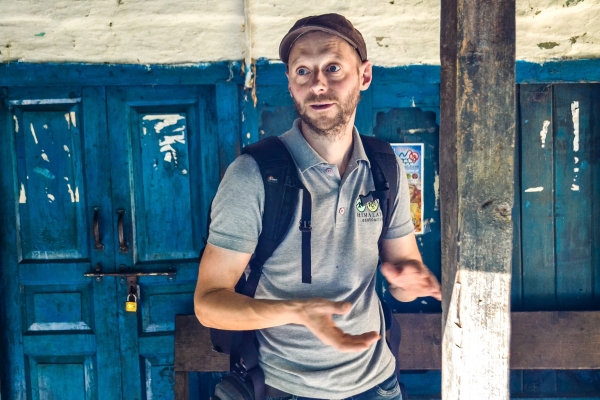
Stephan is Managing Director of Himalayan Ecotourism, an inclusive trekking agency that works with a local cooperative to ensure fair livelihoods and ownership for locals.

Stephan is Managing Director of Himalayan Ecotourism, an inclusive trekking agency that works with a local cooperative to ensure fair livelihoods and ownership for locals.
“It started when I’d informally organised a trek for a few Belgian friends and learnt about the loss of local livelihoods from the prohibition of access to forest produce within the Great Himalayan National Park.
As many of the locals would also double up as guides and porters during the trekking season in Tirthan Valley, ecotourism emerged as a viable option for an alternate source of income. But I was opposed to the model of ecotourism where locals are mere daily wage labourers while the business was owned by somebody else.
I wanted to earn, but I also wanted the people to grow with me. So, after consulting with locals who showed interest and willingness to come together, the GHNP Community-Based Ecotourism Cooperative was registered in July 2014.
As a company, we have faced a lot of resistance from non-members. It became my responsibility to ensure that the cooperative made business and the members received an income. But there were rumours that I took all the money! Our financial records are transparent, templatised and easy to understand. A significant portion of what is charged to our guests goes towards the guide team while another portion is split between equipment maintenance and overhead costs. The profit is equally shared between the cooperative and my firm, which manages the marketing needs.
In recent times, the rising popularity of Tirthan Valley has not only seen an overcrowding of tourists but also rampant mushrooming of guesthouses and homestays. Not all the properties belong to locals. However, not all properties belonging to locals are constructed in the traditional, earth-friendly manner either. There are locals who are eager to give up their land on lease and earn a passive income that meets their everyday needs.
[In the COVID-19 pandemic], we [have] had to find alternate sources of income for our cooperative members.
On the one hand, we will remain a local organisation organising treks and other activities in the national park, and on the other hand, we will be a regional organisation (Himalayas) who will be able to implement bigger projects for conservation.
The takeaway from the experience of the past eight months has been that it wouldn’t be wise to continue having all our eggs in the same basket. Tourism-based livelihoods are, and will remain one of many avenues to support the local community, but we will continue to build on diversifying our approaches and efforts.”
Meet Sanju of the GHNP Community-Based Ecotourism Cooperative
Read more about Himalayan Ecotourism